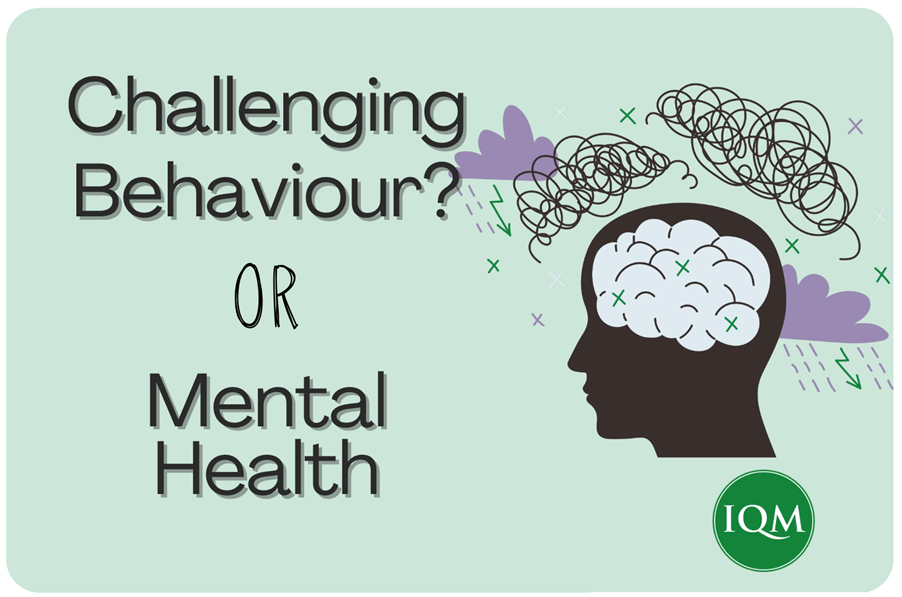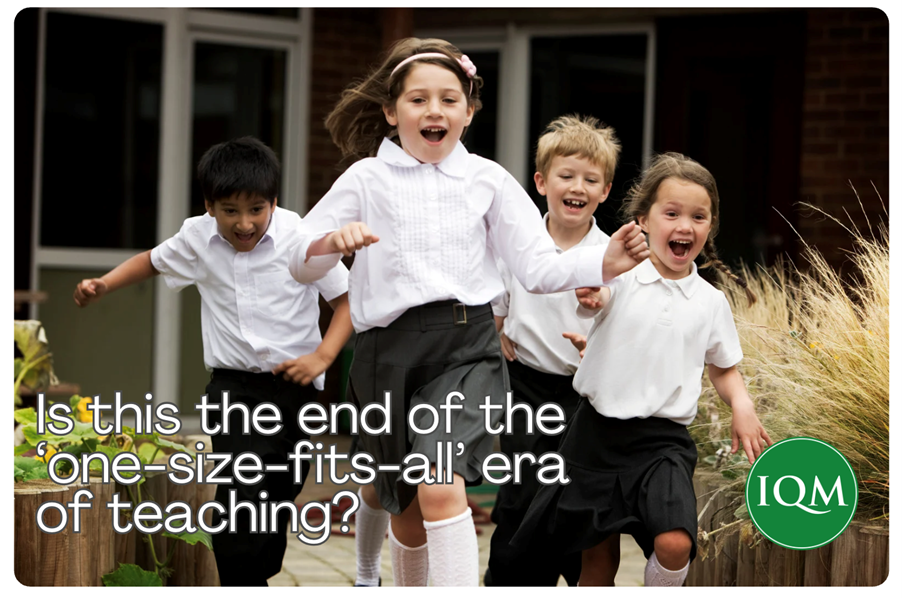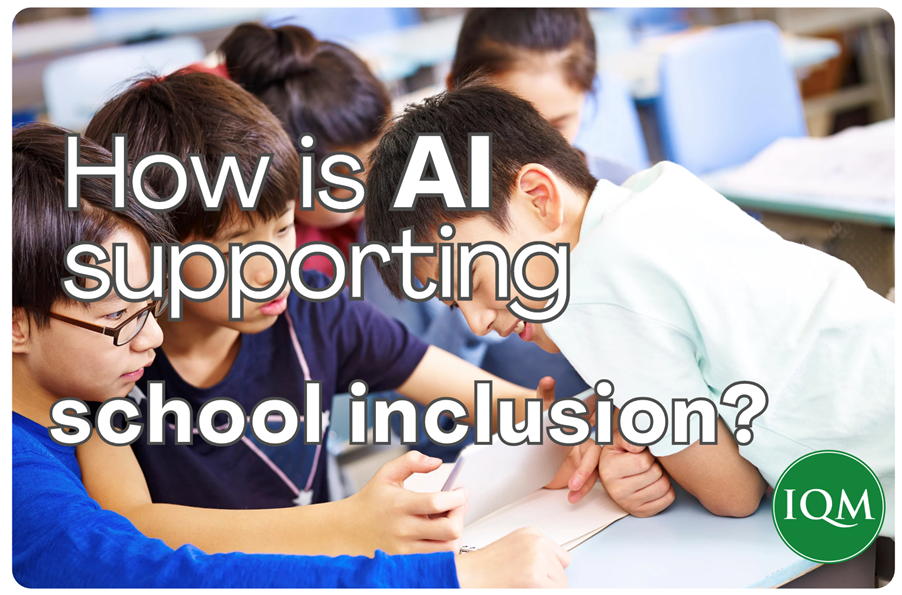Who is IQM?
IQM is the only national inclusion award in the UK. For over 20 years and in over 20 countries, schools, MATs and Local Authorities use the Inclusion Quality Mark to recognise exemplary inclusive practice.
Get in touch for your FREE school information pack today.
Farlingaye High School Achieves Centre of Excellence Status
July 26, 2024
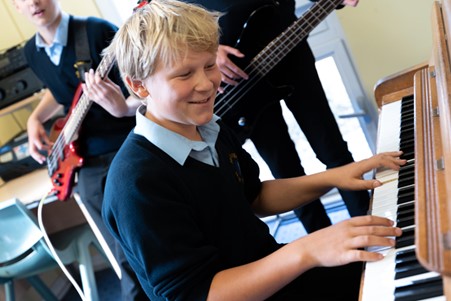
Farlingaye High School (a member of East Anglian Schools Trust) is a large comprehensive school for students aged 11 to 18. It is situated in Woodbridge, Suffolk.
There are 1,925 students currently on roll, 400 of whom are in the sixth form. The most recent Ofsted (2022) opens by commenting that the school, “is a community where pupils feel safe and say they are happy” and that they, “appreciate how their teachers take exceptional care of them. Everyone feels accepted and welcomed”. That ethos was very much in evidence during this assessment.
The school context is diverse with 22% of pupils eligible for Pupil Premium, more than 50 students possess an Education, Health and Care Plan (EHCP) and there are 17 Looked After Children (LAC).
The sixth form is highly successful, with exam outcomes that place them in the top quartile of the county’s achievement charts. 29% of A-levels gained are A star (*) or A, and 79% are A* to C. As a result, students go on confidently to pursue post-18 courses of their choice, be that as Oxbridge undergraduates or apprentices with local technology companies, such as BT and Martlesham. 70% of Key Stage (KS)4 students stay on for sixth form and are joined by around 40 additional external students every year. Overall, 60% of the students move on to university.
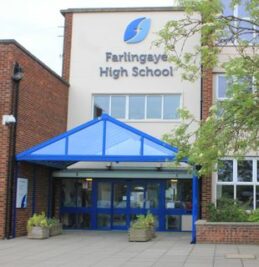
Kindness, coupled with opportunity, is at the heart of the school’s culture. Partnership and collaboration in all aspects of school life and among all stakeholders are particularly important. They are much in evidence on displays, in conversations and in the programmes delivered within classrooms and via the rich extracurricular activity programme.
Personal Development (PD) is high on the agenda, Ofsted noted, “The Leaders’ work to promote Personal Development is exceptional. Students value and respect difference and diversity”. The success the school has achieved in raising the profile of the Duke of Edinburgh Award is representative of the respectful British Values that prevail.
Farlingaye High School has one of the highest participation rates of any non-selective school in the UK. All students in Year 9 are facilitated to take part in the award but the school does not stop there and has many students who go on to achieve both silver and the highly regarded gold awards.
Students entering the school with lower-than-expected starting points are sensitively and well-catered for via the Special Educational Needs and Disabilities (SEND) Hub. Personal Support Plans are created by the team, who then share them with teaching staff and a Teaching Assistants (TA) is provided as a key and personal point of contact and in-class support is made available as needed.
There are a variety of interventions available both inside the class and outside. Whilst guided, students are empowered to take as much charge of their own development as is possible, able to catch up on learning in the style and at a pace that specifically suits them as individuals. The relaxed, highly supportive atmosphere around the school diminishes anxiety and encourages confident participation.
The extensive, well-structured and full transition programme further helps students quickly assimilate into Farlingaye High School. KS3 Leaders, alongside members of the Safeguarding and SEND teams, visit all primary schools to present assemblies in the spring preceding students joining in Year 7. In July, a New Intake Day is held when children meet and work with their tutors and the staff who will be teaching them.
The staff create engaging and friendly classroom experiences for the Year 6 students. A few days later, parents are invited to come in and meet those same tutors and teachers and discuss how the day had been received from their child’s point of view, assuaging any fears and ironing out any issues remaining. These parent events are hosted by Farlingaye High School’s current Year 7s, who also make presentations to explain what their first year at the school had been like, thus providing additional reassurance from another perspective.
Before the summer break, all of the new intake students are invited to take part in a ‘Big Camp’ sleepover in the school grounds. This is an ambitious project that aims to eradicate any remaining apprehension and the theme is ‘participation for all’. Taking this holistic, parent-child-centred approach to the creation of positive relationships reduces anxiety and enables students to quickly embrace secondary school life and learning.
A similar approach is adapted for the transition of older ‘in-year’ entries. A Year 8 student, who recently joined the school after being home-schooled for some considerable time, discussed the graduated and personalised approach that enabled her return to school and how she now felt confident enough to participate in the School Council.
The KS3 team also organises a programme called Humanutopia for Year 9 students. Leadership believes that students transitioning from Year 9 into their GCSE years can become vulnerable to stress and emotional challenges. Deploying an expert agency, a series of workshops are delivered to help students understand the importance of being kind to others, whatever the means of communication and help them see how hurtful or inconsiderate actions and words can have a detrimental effect on the wellbeing of others.
Subsequent sessions then go on to look at goal setting, alongside hopes and aspirations, concluding with peer-to-peer mentoring training for those who wish to take on these roles. Workshops around emotional intelligence and listening skills are offered so that these students can go on to be the new ‘uncles’ and ‘aunts’ for future students. A Year 10 student expressed his gratitude for the Humanutopia experience, asserting that it had made him and his peers much more aware of the comments they made on social media. The programme is designed to give mental wellbeing strength to the whole cohort, thereby ensuring that the school community continues to be supportive citizens, perpetuating the feeling of acceptance and welcome that was noted by Ofsted. A Deputy Headteacher commented that the school wants to help students appreciate that, “giving and making others happy is what creates your own happiness”.
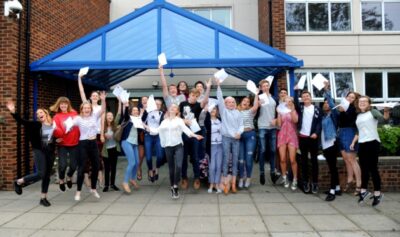
Other Posts

About IQM
The only national award for inclusion in the UK, IQM has been committed to recognising exemplary inclusive schools for over 20 years and in over 20 countries around the world. The three awards allow schools and organisations to celebrate their inclusive practice against nationally recognised framework.
Site Links
© 2026 Inclusion Quality Mark | website developed & cared for by digidoda
